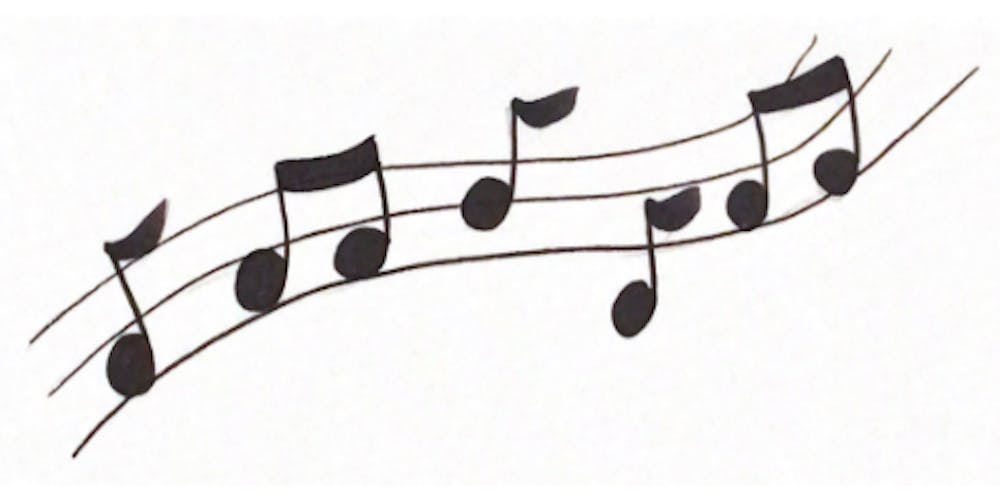Covid-19 fatigue had hit its highest by the end of 2020. People were sick and tired of virtual holiday celebrations, and college students wanted to return to a more normal existence on campus. By the time we got to New Year’s Eve and the clock struck that proverbial Cindrellian midnight, people were talking as if all that was wrong with the world would be fixed simply because 2020 was ending.
But Jan. 1, 2021 came and went, and the U.S. reported 147,159 new cases of the virus. It seemed like 2021 was going to be as harrowing as 2020 for the time being, a feeling that was amplified tenfold when the pandemic took a back seat in the news cycle because our democracy was under siege by a violent mob.
Watching the events of Jan. 6, 2021 caused me to question my faith in an institution that I had previously taken for granted: the American government. Conversations with friends and family revealed that one thing was for certain: no one was entirely sure how to comprehend what they had just witnessed. Rather than burying myself in political punditry from across the spectrum — as I’d done several times before — I found solace from my intensifying confusion by playing through some Beethoven repertoire on the piano. As I played through the third movement of the “Les Adieux” Sonata, I marveled at how lively and joyful music the music was, especially when the composer himself had such a difficult life.

Beethoven’s story is disturbingly similar to our present reality. Facing progressive hearing loss, he endured the embarrassment of having to explain his condition to the public and the consequence that they would have to speak louder for him to hear them. His affliction led him to isolate himself from society — similar to what we have all been forced to do for the last year. When his deafness became inevitable, he slid into depression.
But that wasn’t all — the lesser known story has to do with his political views.
Beethoven was a staunch supporter of democracy and freedom — views he developed as he juxtaposed what he heard about the French Revolution with his current life in the repressive Austrian regime. Specifically, he admired Napoleon as a heroic revolutionary so much so that he dedicated his masterful “Eroica” symphony to him. But this all changed when Napoleon declared himself Emperor and became the exact thing Beethoven despised, leading him to scratch Napoleon’s name off the symphony.
Napoleon invaded Beethoven’s home country, Austria, in 1809. It was around this time that Beethoven’s hearing had also forced him to stop performing in public. While Beethoven was experiencing extreme sorrow and worry on both personal and political fronts, he wrote his third cello sonata — one of the most positive and joyful works ever written. The even more baffling fact is that the inscription on his manuscript reads, “amid tears and sorrow.” In an interview with The Campus, Middlebury Professor of Music Larry Hamberlin noted Beethoven’s ability to write exquisitely humorous works during his lowest moments in life. Pieces like his second and eighth symphony — full of musical jokes — were written when he was at his lowest point and even contemplating suicide. “This was like a personal skill he had. He wrote his way out of depression,” Hamberlin said.
Beethoven said that his art was the only thing that got him through his depression. Just as it helped him, his music can provide solace to us as well during these uncertain times. The horrific scenes of the Capitol riot left many terrified about the future of our country, but we — like Beethoven — can find hope in the face of fascism. Years after witnessing political turmoil in his country, he wrote his “Ode to Joy” as the fourth movement of his ninth symphony, a piece that has been used as an anthem of protest in many places, including the fall of the Berlin Wall and the Tiananmen Square protest. The fact that Beethoven could set this positive poem about joy and freedom to music at the end of his troubled life is the ultimate symbol of resilience and hope.
Here’s my recommendation: the next time you’re stressed or worried during these troubled times, rather than scrolling through Twitter or reading a pundit’s commentary, try listening to a piece mentioned in this article, or any piece by Beethoven. The refreshing positivity never gets old.
Tejas Srinivasan is a member of the class of 2024.

Tejas Srinivasan '24 (he/him) is an Editor at Large.
Originally from Cincinnati, Ohio, Tejas previously served as an opinion editor. He spent his junior year in London at King’s College. Outside of The Campus, he also hosts a podcast called Cultural Mixtapes which he started in the summer of 2022. Tejas is an English Major, on the literature track, with a music minor.


![Copy of Editorial [Susanna] (3) (1) (2) (1).JPG](https://snworksceo.imgix.net/mbc/11c1e285-1b2c-4ee9-9d20-4a2f24335290.sized-1000x1000.JPG?w=1500&ar=16%3A9&fit=crop&crop=faces&facepad=3&auto=format)

